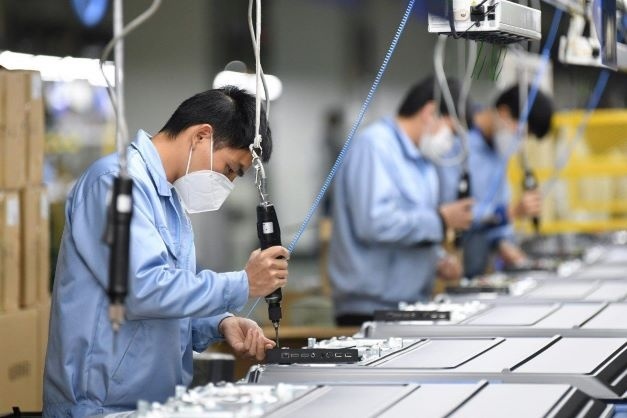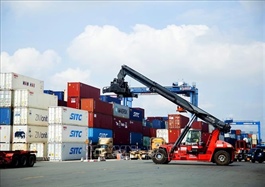Manufacturing orders decline significantly due to tariff announcements
Manufacturing orders decline significantly due to tariff announcements
The US' recent tariff announcement triggered a renewed contraction in Vietnam's manufacturing sector in April, marking a setback for the country's export-driven economy.
|
Output, new orders, employment, and purchasing were all down sharply in April, while business confidence dropped to a 44-month low amid concerns about the further impact of tariffs on future production. A lack of demand meant that firms continued to lower their selling prices, while input costs rose only slightly.
The S&P Global Vietnam Manufacturing Purchasing Managers' Index (PMI) dropped back below the 50-point no-change mark in April, after having signalled growth for the first time in four months in March. At 45.6 points, the latest reading was down from 50.5 points and signalled a marked monthly deterioration in the health of the sector.
Business conditions in April worsened to the largest extent since May 2023. Manufacturing new orders decreased markedly, reversing the expansion seen in March. Moreover, the rate of contraction was sharp and the fastest in almost two years. Respondents indicated that the drop in new orders reflected the introduction of tariffs by the US and fluctuations in international market conditions.
New export orders fell even more quickly than total new business amid the declaration of tariffs. The sixth successive decrease in new business from abroad was the most marked since June 2023. Tariffs, and the reduction in new orders, led to a renewed fall in production following a rise in March. The decline in output was marked and the fastest since January 2023.
Manufacturers were also concerned about the impact of tariffs on production in the months ahead. Business confidence dropped sharply and was the lowest since August 2021. In fact, the level of optimism was one of the weakest in the series history.
Backlogs of work fell sharply amid lower new orders, with the rate of depletion broadly in line with that seen in the previous month. Lower workloads led manufacturers to scale back employment, the seventh month running in which this has been the case. Furthermore, the pace of job cuts was the steepest for three-and-a-half years.
Firms also reduced their purchasing activity sharply in response to lower new orders and declining output requirements. Input buying was down for the second consecutive month, and to the largest degree since May 2023. In turn, stocks of purchases were also down, and to the largest extent since last September.
Andrew Harker, economics director at S&P Global Market Intelligence, said, "The imposition of tariffs by the US knocked the Vietnamese manufacturing sector into contraction in April, with firms seeing marked reductions in new orders, exports and production. What's more, the potential for further disruption to the sector as a result of additional tariffs meant that business confidence slumped and was one of the lowest on record. In what is a fluid situation, it will be important to keep tracking the S&P Global PMI data for Vietnam over the coming months to see how business conditions evolve."
- 16:22 05/05/2025




























